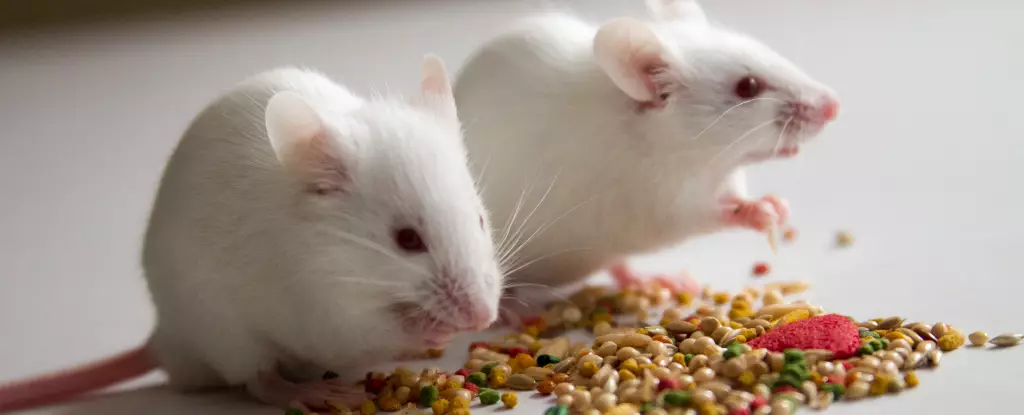In the realm of longevity research, caloric restriction has emerged as a tantalizing strategy purported to extend life expectancy across various species. Recent animal studies, particularly one involving nearly 1,000 genetically diverse mice, have underscored this theory. Findings suggest that consistent food restriction can lead to notable metabolic changes and reduced body mass—factors typically associated with increased longevity. However, as delightful as these revelations are, they come with caveats that warrant careful consideration, especially when we attempt to draw parallels to human health.
Extensive research has shown that a plethora of animal species—from monkeys to nematodes—exhibit longer lifespans when subjected to dietary limitations. Yet, translating these animal-based findings into human applications remains fraught with challenges. The ethical complications surrounding human trials mean we often rely on observational studies, such as those examining intermittent fasting. These studies have suggested that moderate caloric restriction may yield benefits, including lower weights, reduced body fat, and minimized risks of cardiometabolic diseases. However, establishing direct causation from these correlations is intricate, largely due to the small sample sizes and short duration typical of many studies.
In the aforementioned mouse study, those who experienced significant calorie limitations demonstrated a considerable loss in weight. By the end of the study, heavily restricted mice were on average 25% lighter than their well-fed counterparts, while also enjoying an impressive increase in lifespan—living nearly nine months longer. However, this data prompts deeper inquiry into the variability within the results, hinting that not all mice respond uniformly to caloric moderation.
A critical observation from the study indicates that longevity in calorie-restricted mice was not merely a function of lower caloric intake or weight loss. In fact, a significant aspect of the findings was the wide age range among mice on restricted diets, with some living remarkably longer than others. This variability raises questions about the relative importance of genetics versus diet in determining lifespan.
For instance, mice that retained weight during stressful situations showed a favorable chance of survival, implying that resilience could play a crucial role in longevity. Additionally, factors such as a higher proportion of infection-fighting white blood cells and consistent red blood cell sizes appeared relevant. This suggests that a mouse’s inherent biological robustness could be more pivotal to its lifespan than caloric intake alone. The study reinforces the idea that longevity is a confluence of various factors, entwined with our biology and external pressures.
When one considers the implications for human health, these mouse studies prompt a shift in perspective. While caloric restriction might offer a pathway to extend lifespan, results imply that it must occur alongside other healthful practices. Rather than viewing caloric limitation purely as a means to an end, we should instead consider a holistic approach to wellbeing. Human individuals are also characterized by complex interactions between genetics and environmental factors that influence health outcomes.
Moreover, the examination into the intricate relationships between metabolism, bodily stressors, and long-term health outcomes paints a nuanced picture. It suggests that while dietary adjustments can be beneficial, maintaining overall health may hold equal, if not greater, significance compared to simply pursuing longevity through caloric restriction alone. In light of these findings, individuals should focus on comprehensive health strategies that encompass balanced nutrition, physical activity, and stress management.
In summation, the inquiry into caloric restriction and lifespan, particularly as demonstrated through studies on mice, unveils a fascinating yet complex relationship. While the results offer tantalizing insights into how restricted diets may translate to longer lives, they also serve as a reminder of the multitude of factors at play, particularly individual biological variations. As we continue to explore the link between dietary habits and longevity, it is crucial to adopt a balanced approach that prioritizes overall health, resilience, and well-being. Ultimately, whether striving for longevity or simply aiming for a healthier life, understanding the interplay of diet, genetics, and lifestyle choices may prove to be the key to a fulfilling existence.

